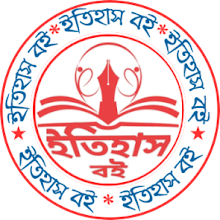Causes, Consequences, and Failure of The First War of Independence (1857)
1. Causes of the War:
Political Causes:
- The Doctrine of Lapse.
- Discourtesy to the Mughal Emperor.
- Treatment to Nana Saheb (Refusal of Pension).
- Annexation of Awadh.
- Unpopular Administration.
- The Vague and Floating Rumors
Religious & Social Causes:
- Fears regarding mass conversion to Christianity.
- Laws that interfered with the religion and customs of the people.
- Introduction of Railways and Telegraphs.
- Indignities hurled at the Indians.
- Fears regarding English Education.
Economic Causes:
- The ruin of trade & Handicrafts.
- Impoverishment of the cultivators.
- India reduced to an Agricultural Colony of the British.
- Inhuman treatment to the Indigo - cultivators.
- Annexation of rent free lands and estates.
- Loss of livelihood.
- Large - scale famines.
Military Causes:
- Low salary and poor prospects of promotion.
- Faulty distribution of troops.
- Disproportion between Indian and British troops.
- Social distance between British officers and Indian soldiers.
- Discontent in the Bengal Army.
- Loss of prestige in the Afghan war.
- General Service Enlistment Act.
The immediate cause
(Introduction of the Enfield rifles).
2. Nature of Revolt: War of Independence? or Sepoy Mutiny?
A War of Independence
Veer Savarkar and Netaji Subhash Chandra Bose referred it as the First War of Independence. It united the Hindus and the Muslims.A Sepoy Mutiny:
R.C. Majumdar and Sir John Lawrence viewed it as a mere Sepoy Mutiny. It was localized, restricted and unorganized.
The Revolt developed into a War of Independence:
Besides the Sepoys, millions of people took part and it became a national uprising.3. The Events of the War:
1. Jhansi:
Rani Laxmi Bai took the command but lost to the British.2. Lucknow:
Begum Hazrat Mahal took the command. On 30th May, there was a severe rising. In March 1858, Lucknow fell into the hands of the Britishers.3. Kanpur:
Nana Saheb directed the operation, but was defeated on 5th December.4. Delhi:
Soldiers in Meerut reached Delhi on 11th May, where local troops joined them.5. Meerut:
On 6th May, soldiers who refused to touch the cartridges were sentenced to imprisonment. On 10th May, Indian Soldiers revolted.6. Other Parts of India:
In Bihar, war was fought by Kunwar Singh. Similar uproar was observed in Gaya, Ranchi and Haryana.4. Consequences of the War:
- End of Company's rule and changes introduced in the Administrative set up.
- Policy towards the Indian princes and chiefs (No annexation with limited rights).
- Reorganization of the Army.
- Solemn promises made to the people of India.
- Policy of ‘Divide and Rule’.
- Economic exploitation.
- Rise of Nationalism in India.
5. The Causes of our Failure:
- Lack of Coordination among the leaders.
- Lack of efficient leadership.
- Superior equipments and resources of the British.
- The war was localized.
- No scheme of a national state.

Comments
Post a Comment